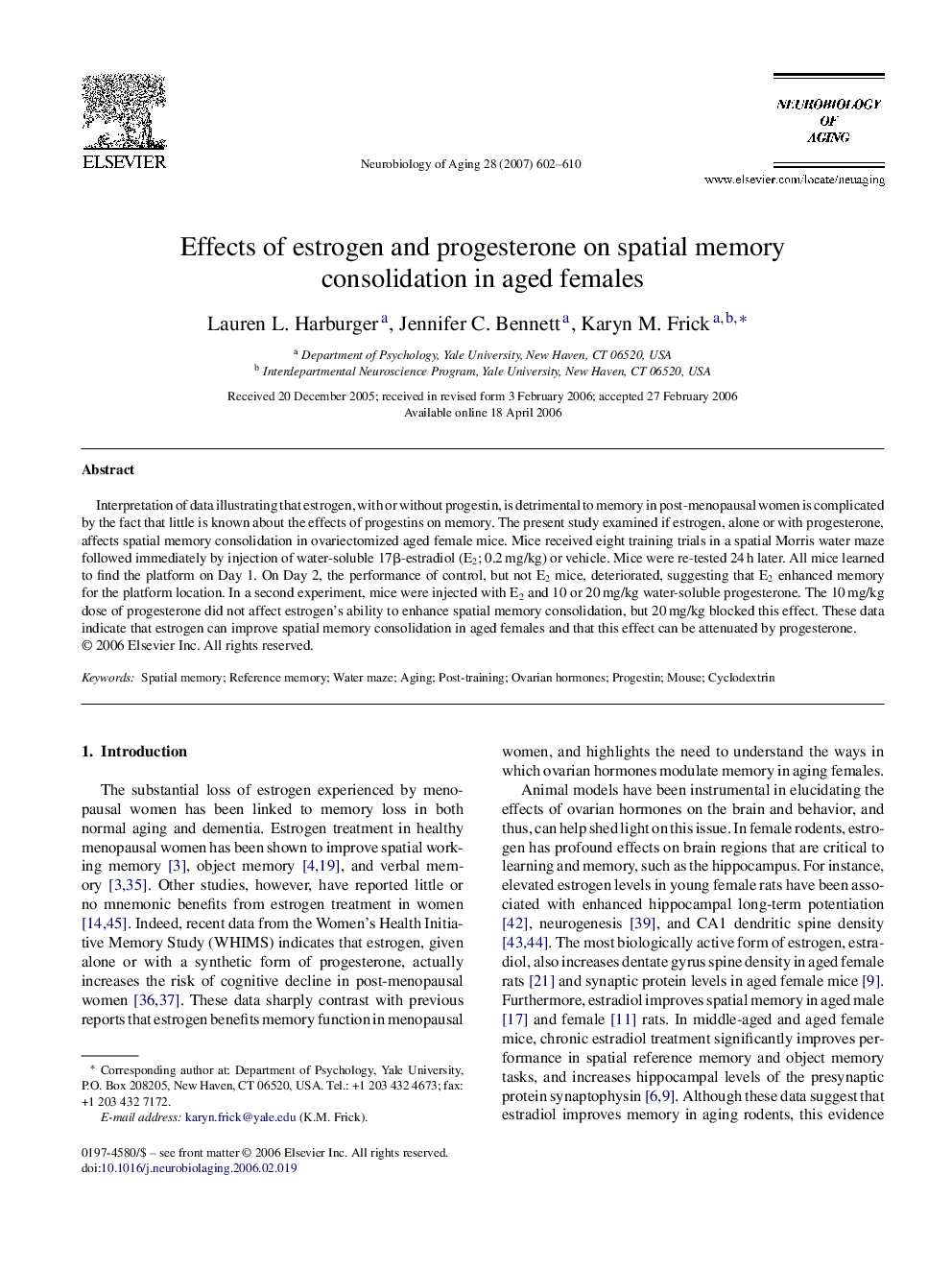| Article ID | Journal | Published Year | Pages | File Type |
|---|---|---|---|---|
| 328808 | Neurobiology of Aging | 2007 | 9 Pages |
Interpretation of data illustrating that estrogen, with or without progestin, is detrimental to memory in post-menopausal women is complicated by the fact that little is known about the effects of progestins on memory. The present study examined if estrogen, alone or with progesterone, affects spatial memory consolidation in ovariectomized aged female mice. Mice received eight training trials in a spatial Morris water maze followed immediately by injection of water-soluble 17β-estradiol (E2; 0.2 mg/kg) or vehicle. Mice were re-tested 24 h later. All mice learned to find the platform on Day 1. On Day 2, the performance of control, but not E2 mice, deteriorated, suggesting that E2 enhanced memory for the platform location. In a second experiment, mice were injected with E2 and 10 or 20 mg/kg water-soluble progesterone. The 10 mg/kg dose of progesterone did not affect estrogen's ability to enhance spatial memory consolidation, but 20 mg/kg blocked this effect. These data indicate that estrogen can improve spatial memory consolidation in aged females and that this effect can be attenuated by progesterone.
